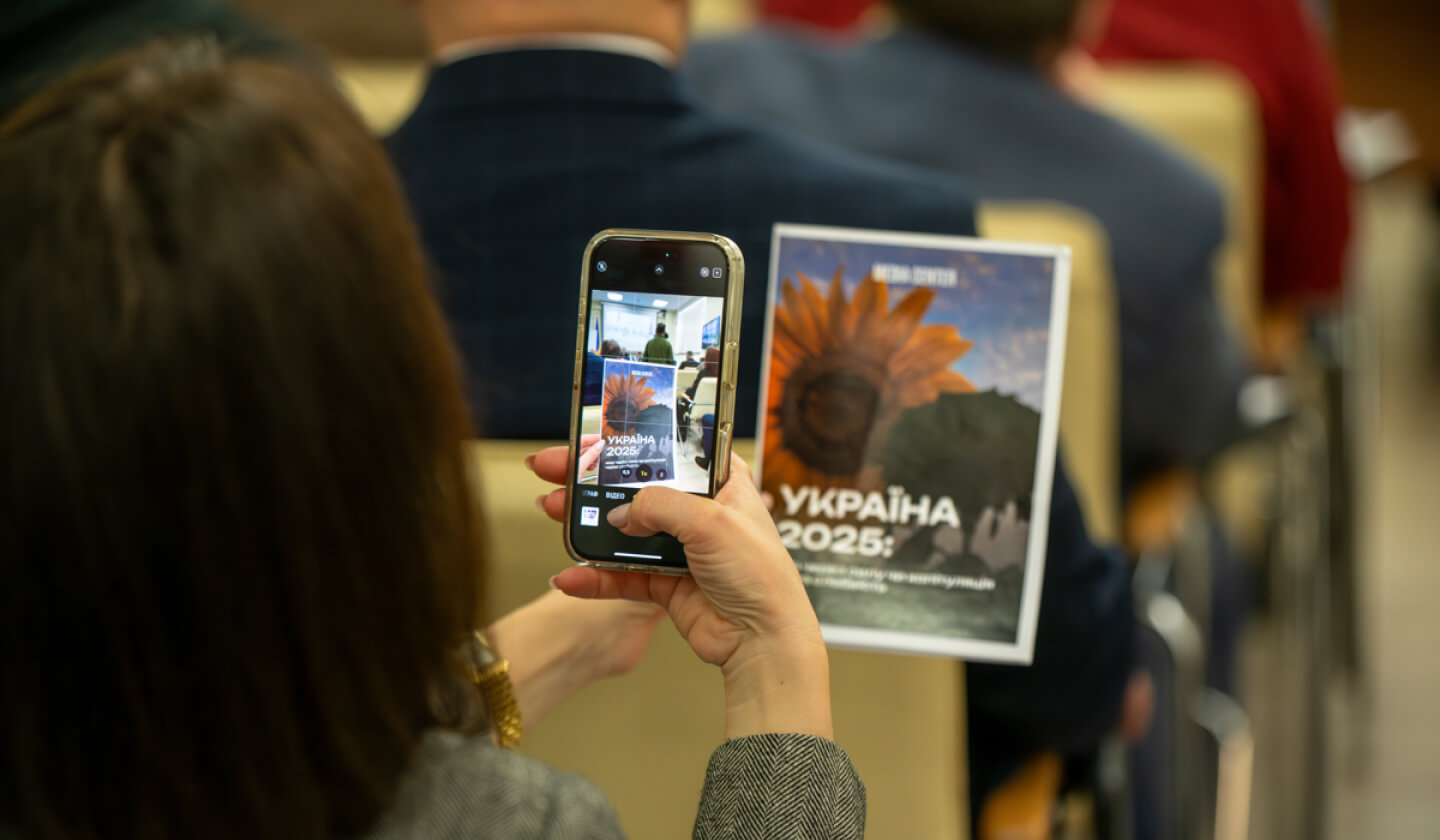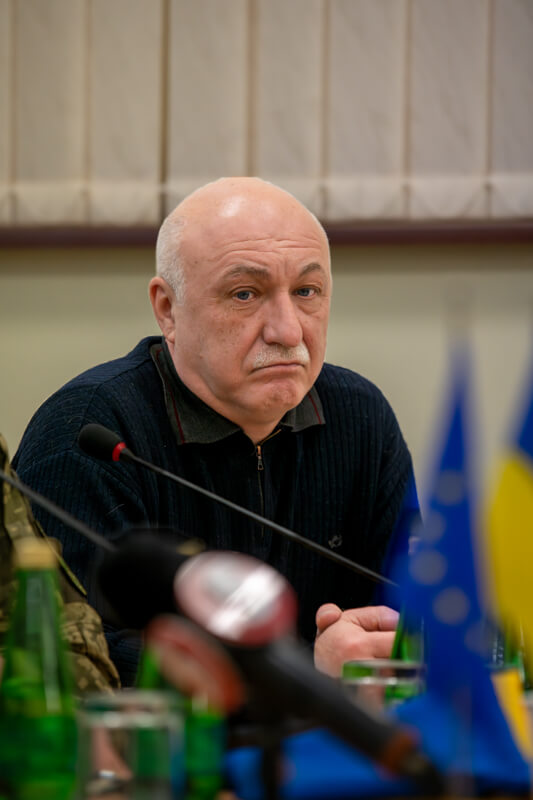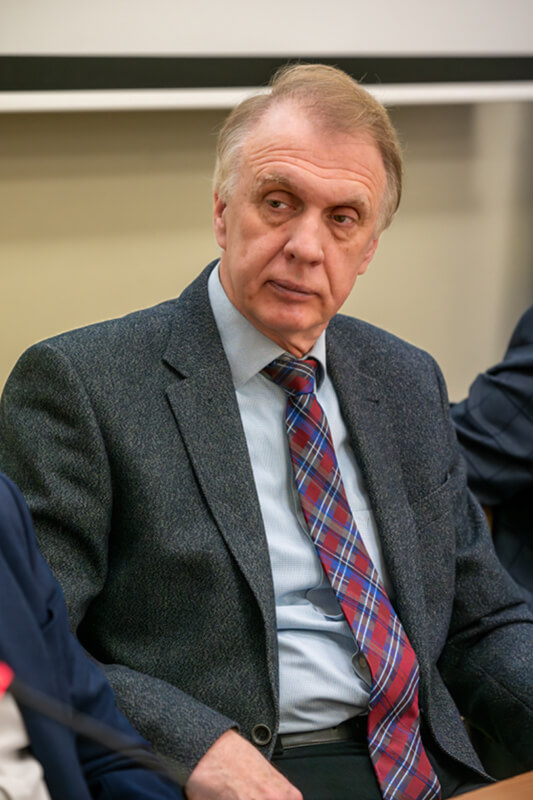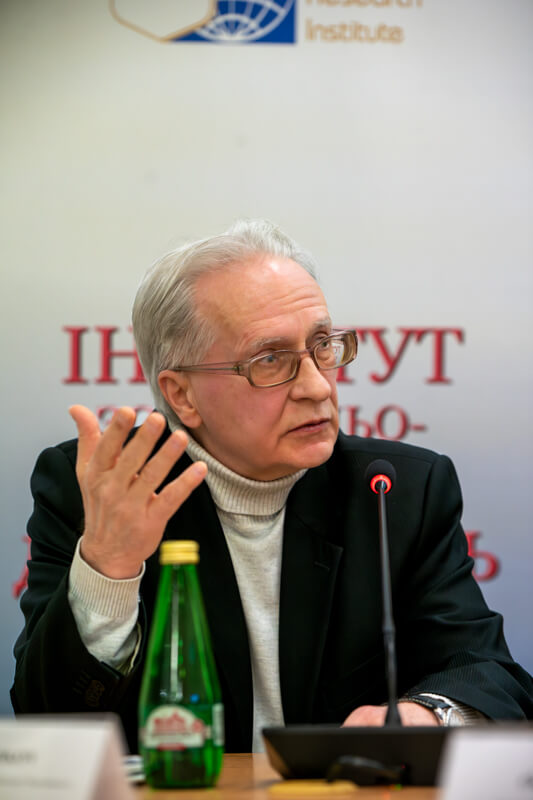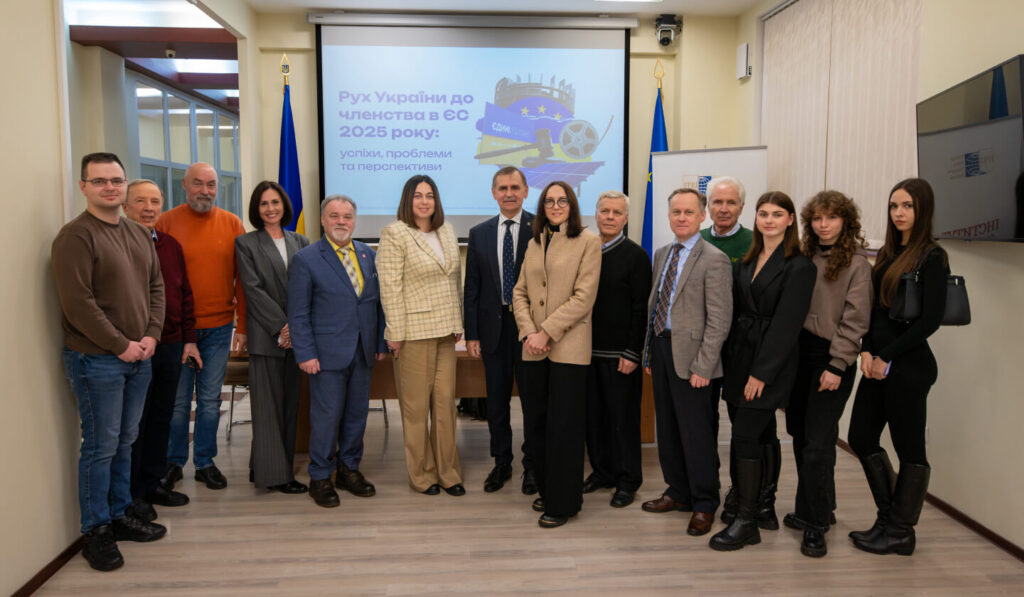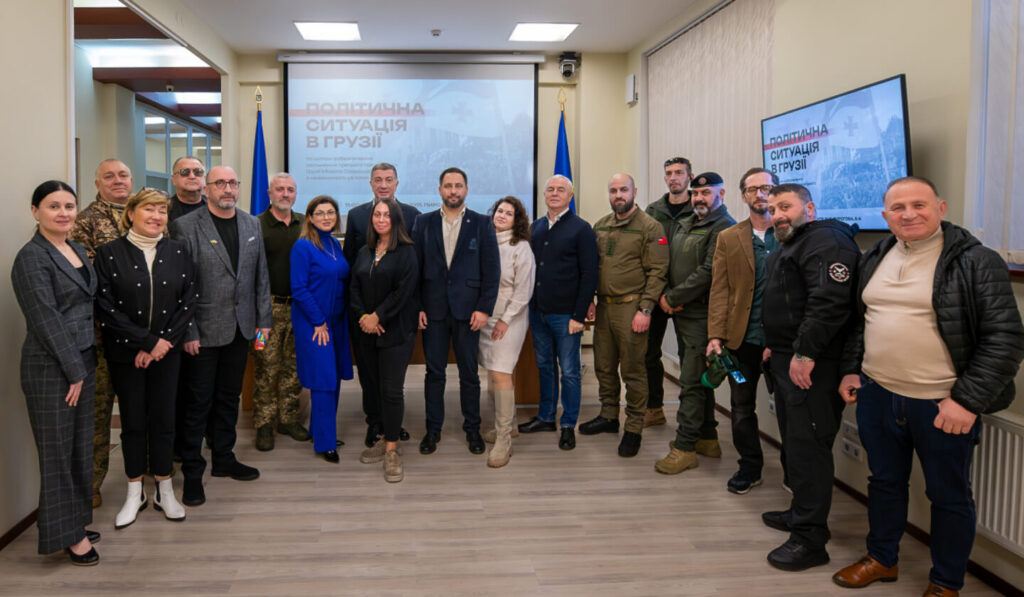On Tuesday, 25 February 2025, the Foreign Policy Research Institute, with the organisational support of the GDIP, held a roundtable discussion entitled UKRAINE 2025: Peace through Strength or Capitulation through Weakness.
Hryhorii Perepelytsia, Foreign Policy Research Institute Director, Doctor of Political Science, full professor at the Department of International Relations and Foreign Policy at the Educational and Scientific Institute of International Relations at Taras Shevchenko National University of Kyiv, moderated the event.
In his introductory remarks, Mr Perepelytsia substantiated the urgency of the issues raised for discussion, outlined the challenges and threats that Ukraine faces on its path to peace under different scenarios, the change of narratives from ‘victory’ to ‘peace’, the imposition of Ukraine’s surrender through a forced ‘peace’ by russia and the United States, and noted that a just peace and security for Ukraine are only possible within a new international security system.
‘It is obvious that, instead of the announced three days, the enemy is still unable to defeat us within three years. Nevertheless, in 2025, we have entered the most difficult and probably final period after the Kyiv offensive of 24 February 2022, as we more and more often hear “peace” instead of “victory”. The international community is trying to help us achieve peace, and not only us. It is both a source of hope and a wake-up call. The question is what kind of peace we can achieve and what consequences we can expect. Our president and partners say that peace must come through strength. But despite this, our key partner, the United States, has now sided with russia. As a result, we have found ourselves in a very tough situation, because the new US government considers russia a partner. Thus, we face the question: is a just peace possible without the support of our partners, is it possible to achieve a just peace without victory,’ Hryhorii Perepelytsia pointed out.
The round table gathered: Volodymyr Ohryzko, Minister for Foreign Affairs of Ukraine (2007–09), Ambassador Extraordinary and Plenipotentiary, Head of the Centre for russian Studies; Oleksandr Musiienko, Head of the Centre for Military and Legal Studies, service member of the Territorial Defence Forces of the Armed Forces of Ukraine; Pavlo Lakiichuk, Head of Security Programmes at the Strategy XXI Centre for Global Studies; Mykhailo Pashkov, Co-Director of Foreign Policy and International Security Programmes at the Razumkov Centre; Oleksandr Khara, Executive Director of the Centre for Defence Strategies.
The event tackled a number of important issues, such as: 1) is a just peace possible without victory, and can victory be replaced by peace, considering that: Ukraine’s partners are afraid of russia’s defeat and the outbreak of the Third World War; the West does not believe in Ukraine’s victory and is reluctant to enhance support, ultimately dooming itself to failure alongside Ukraine; the West does not demonstrate strength, making peace with russia through force unachievable due to its absence; 2) peace as a mutual compromise by disarming Ukraine, granting it a neutral status and electing a new government; 3) peace through a compromise between Trump and putin on China and the division of spheres of influence in Europe; 4) peace through a compromise with russia by removing Volodymyr Zelenskyy via elections in Ukraine; 5) will Europeans agree to a division of spheres of influence in Europe under the Yalta 2 formula; 6) Which of the three scenarios for Ukraine do you consider the most optimal and likely: continued war with russia until it loses the ability to conduct further military operations; a ceasefire without any security guarantees; peace through Ukraine’s capitulation.
Volodymyr Ohryzko shared his thoughts on the change in the US worldview and the shift from liberal to authoritarian views, also expressing his opinion on the possible collapse of the Trump-putin alliance due to the high probability of Trump’s expectations from russia not being met.
‘Frankly speaking, I would not make any final conclusions at this point, because Ukraine has now got some extra chances. Yesterday’s manifestations of European unity in Ukraine are great proof of this. Our European partners have clearly stated that they will stay by our side — not formally, but in practice,’ added Mr Ohryzko.
For his part, Oleksandr Musiienko said that the current situation on the battlefield is even slightly better than it was a year ago. This is evidenced by the absence of major enemy successes, an increase in Ukrainian strikes on russian military targets, the introduction of the army corps system and an active recruitment campaign in Ukraine, russia’s ‘fake news’ about the likely dates of the ceasefire, which indicate the enemy’s weakness, the lack of a post-ceasefire plan and further action strategy.
‘Ukraine is desperately struggling both in the international arena and with regard to protecting its national interests, as well as to secure aid packages and to develop partnerships with European countries, which is very important now,’ Mr Musiienko concluded.
Oleksandr Slipchenko, diplomat, Ambassador Extraordinary and Plenipotentiary, writer, military diplomat at the Mission of Ukraine to NATO, and Colonel Petro Kanana joined the discussion.
